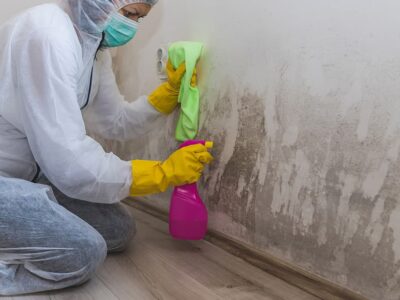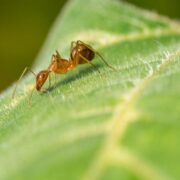As parents, we always strive to create a safe and healthy environment for our children. However, when it comes to dealing with pesky pests in our homes or gardens, the quick solution of store-bought pesticides may seem tempting. But have you ever considered the potential dangers these products pose to your little ones? In this blog post, we will explore the risks associated with using store-bought pesticides around children and provide valuable insights on how to safeguard your family’s well-being while effectively controlling pests. Let’s dive in!
Common Ingredients in Store-bought Pesticides and Their Effects on Children
Many store-bought pesticides contain chemicals like organophosphates, carbamates, and pyrethroids. These ingredients are designed to eliminate pests but can also pose significant health risks to children if not used cautiously. Organophosphates, for example, have been linked to neurological issues in young ones due to their impact on the nervous system. Carbamates can cause symptoms like nausea and dizziness when exposed to high levels.
Pyrethroids are synthetic versions of natural insecticides found in chrysanthemum flowers. While they are considered less toxic than other pesticides, prolonged exposure can still lead to skin irritation or respiratory problems in children. Additionally, inert ingredients in these products may not be listed on labels but could also be harmful if ingested or inhaled accidentally by curious kids.
Understanding the potential effects of these common pesticide ingredients is crucial for safeguarding your child’s health and well-being amidst pest control efforts at home or outdoors.
Health Risks Associated with Pesticide Exposure in Children
Pesticides, while effective at controlling pests, can pose serious health risks to children. Exposure to these chemicals can lead to various health issues, including respiratory problems, skin irritations, and even neurological disorders. Children are particularly vulnerable to the harmful effects of pesticides due to their developing bodies and immune systems.
Research has shown that pesticide exposure in children is linked to an increased risk of certain cancers, such as leukaemia and brain tumours. Additionally, prolonged exposure to these toxic substances can disrupt hormonal balance and interfere with normal growth and development.
It’s essential for parents and caregivers to be aware of the potential health risks associated with using store-bought pesticides around children. Taking precautions like reading labels carefully, following instructions diligently, and storing pesticides out of reach can help minimize the dangers posed by these chemicals.
How Can Pesticides Affect Child Development?
Exposure to store-bought pesticides can have detrimental effects on a child’s development. Children are more vulnerable to the toxic ingredients in these products due to their smaller size and developing bodies. Pesticides can disrupt hormonal balance, leading to potential long-term health issues.
Studies have shown that pesticide exposure in children is linked to cognitive delays, behavioural problems, and even an increased risk of certain cancers. These chemicals can also impact respiratory health, exacerbating conditions like asthma.
Furthermore, pesticides may interfere with the proper functioning of the nervous system in children, potentially causing neurological issues or learning disabilities. It’s crucial for parents and caregivers to be aware of the risks associated with using store-bought pesticides around children and take necessary precautions to protect their well-being.
Tips for Safely Using Pesticides Around Children
When it comes to using pesticides around children, safety should always be the top priority. Here are some tips to help ensure a safe environment for your little ones:
- Read and follow the instructions on the pesticide label carefully. This includes proper storage, handling, and application.
- Use targeted treatments instead of broad-spectrum pesticides whenever possible to minimize exposure.
- Apply pesticides when children are not present or are away from the treated area for an extended period.
- Keep all pesticide products out of the reach of children in locked cabinets or high shelves.
- Consider natural alternatives like essential oils, diatomaceous earth, or beneficial insects for pest control.
- Regularly ventilate indoor spaces after pesticide application to reduce lingering chemicals in the air.
Alternatives to Store-bought Pesticides for Pest Control
When it comes to keeping your home pest-free without putting your children at risk, opting for professional pest control services is a safe and effective alternative to store-bought pesticides. Pest control experts have the knowledge and tools to eliminate pests while minimizing exposure to harmful chemicals that can endanger children.
By choosing pest control services, you can protect your family’s health and well-being while ensuring that your home remains free of pests. So, next time you’re dealing with unwanted critters in your living space, consider reaching out to professionals who can safely handle the situation. Your children will thank you for it in the long run!
Conclusion
It is crucial to prioritize the safety of children when dealing with pest control in and around your home. Store-bought pesticides can pose serious health risks to children due to their toxic ingredients and potential long-term effects on development. By understanding these dangers and being mindful of alternative methods for pest control, parents can create a safer environment for their little ones. Remember, a healthy home is a happy home – one that is free from harmful chemicals that could harm those most precious to us.













Comments